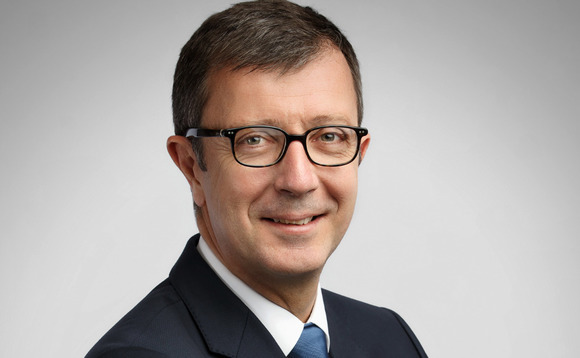
French PE must exploit "momentum", says new Afic chair

Eurazeo executive Olivier Millet recently took over as president of French private equity association Afic. Speaking to Alice Tchernookova, he outlines how French venture and private equity, which have enjoyed healthier market conditions over the last two years, can further improve
"I am utterly convinced there is currently strong momentum, which we need to make the most of," says newly elected Afic president Olivier Millet. He defines this momentum in three ways: the quality of French companies, the quality of local funds and their way of functioning, and the "strong need" to reassign large saving amounts towards profitable investments.
Statistics speak for themselves: in 2015, French private equity saw 1,645 companies financed, €10.7bn invested (an eight-year high) and €10bn of funds raised, according to Afic statistics. Seed capital hit a record high with 499 supported businesses for a total of €758m, while growth capital went up by 48% from 2014 with €3.9bn invested. Most supported businesses were French (85%), though 29% (€3bn) of invested funds came from non-French players, showing an increased interest in French businesses from foreign investors.
In other words, things are looking good for French GPs – a situation that Millet reads in two ways: "Either we're going back to pre-crises activity, or it's a stepping stone towards something bigger, and we aim to exceed raising €10bn."
The best scenario for Afic, of course, is the latter. As it is keen on repeating, the organisation is looking to double the size of France's private equity market over the next five years. As he gets set to steer Afic through the next 24 months, Millet has identified two main objectives for French private equity in order to achieve this objective.
Co-op mode
For Millet, it is essential to join forces with two key partners: businesses themselves, and long-term savings actors, such as insurance companies.
A recent joint report by Afic and EY shows the response to private equity investments within businesses is overwhelmingly positive: according to the collected data, in more than 95% of the cases, work councils were favourable to buyout transactions within their company, with 96% favourable upon entry and 98% favourable upon exit. Encouraging dialogue with more companies in order to extend the reach of priavate equity funds is therefore crucial, says Millet. Afic is also keen to strengthen its links with major employers' organisations in France, such as Medef, CGPME, Croissance Plus, France Digitale and others.
On the insurers front, Millet also calls for more cooperation. Thanks to amendments to the Solvency II regulation, tax rates related to investments in non-listed companies for insurance companies has already been brought down from 49% to 39% – a progress that needs further encouragement, Millet says.
Although investments made by insurance companies in the sector have nearly gone back to pre-crisis levels – €1.6bn currently, compared to €1.9bn in 2006-2008 – "it is still insufficient considering the savings reserves currently available," Millet says, pointing out the particularly high levels of liquidity at present.
Campaigning for 2017
Such sweeping changes are likely to require support beyond the financial and business sphere though. "We are in France – regulation is important," says Millet, who puts the need for an open and constructive dialogue with the government at the top of the agenda for his two-year presidency.
Looking forward to what will be at stake in the 2017 national presidential campaign, his ambition is to make private equity a key topic of the electoral campaign. "Both major political parties have already become aware of the positive impact we have on the country's economy," says Millet. "The 2017 elections will be a chance for us to make our voice heard, and to reassert that we are real contributors to the country's economic growth. We want to be an integral part of the debate around economic policies."
The project has already been kicked off; Millet says the association is putting in place a strategy of systematically engaging the campaign teams for the various parties, as well as the influential figures likely to be weighing in on the candidates and the wider debates as the election grows near.
Latest News
Stonehage Fleming raises USD 130m for largest fund to date, eyes 2024 programme
Sponsor acquired the public software group in July 2017 via the same-year vintage Partners Group Global Value 2017
Stonehage Fleming raises USD 130m for largest fund to date, eyes 2024 programme
Czech Republic-headquartered family office is targeting DACH and CEE region deals
Stonehage Fleming raises USD 130m for largest fund to date, eyes 2024 programme
Ex-Rocket Internet leader Bettina Curtze joins Swiss VC firm as partner and CFO
Stonehage Fleming raises USD 130m for largest fund to date, eyes 2024 programme
Estonia-registered VC could bolster LP base with fresh capital from funds-of-funds or pension funds









